Eid al-Aḍḥā Through the Quran, Torah and Bible: Unity in Diversity
The month of Ḏū al-Ḥijja has a unique identity in the Islamic calendar; this month enjoys the festival of sacrifice and the performance of Ḥajj (pilgrimages) and so on. While it holds deep religious significance within the Islamic faith, it also carries elements that foster connections and promote understanding between Islam, Judaism, and Christianity. Adherents of these three religions explore the commonalities between these two faiths during the occasion of Eid ul Adha, highlighting the shared values of compassion, sacrifice, and faith that form a bridge between the adherents of these three.
History
Islam, Judaism, and Christianity are three major monotheistic religions that share historical, theological, and textual connections. While they have distinct theological and historical differences, there are also numerous points of connection and shared values that have shaped their interfaith relationship throughout history. According to Alija Izetbegović, these three religions played a major role in human history. Through them, man has become the axis of history and has learned to perceive humanity as a whole[i]. Here are some key aspects of their relationship:
Abrahamic Roots
All three religions trace their origins back to the figure of Abraham (Ibrāhīm in Islam). Abraham is considered a central figure and a patriarch in the religious narratives of Islam, Judaism, and Christianity as he is known as the father of religions[ii]. According to these traditions, Abraham played a crucial role in establishing a covenant with God and is revered as a model of faith.[iii]
Shared Scriptural Heritage
The three religions share certain scriptural texts, albeit with variations. The Hebrew Bible (Tanakh) is considered sacred in Judaism, while Christians recognize it as the Old Testament alongside the New Testament. The Quran is the holy book of Islam and is believed to be the word of God as revealed to the Prophet Muhammad ﷺ.
Belief in One God:
Islam, Judaism, and Christianity are monotheistic religions, affirming the belief in the existence of one God. The concept of God's oneness, known as monotheism, is a fundamental tenet in these faiths.
Prophetic Tradition
All three religions venerate various prophets and messengers, although the specific figures and their roles may differ. For example, Islam recognizes prophets such as Moses (Musa) and Jesus (Isa) as important messengers of God, and Prophet Muhammad ﷺ as the final messenger. Christianity considers Jesus as the central figure and for Jews it is the Messiah.
Divergent Theological and Doctrinal Beliefs
While there are shared elements, significant theological and doctrinal differences exist between these religions. Each faith has its distinct beliefs, rituals, and practices that shape its religious identity. For example, Christians believe in the divinity of Jesus and his sacrificial atonement for humanity's sins, which differs from the beliefs of Judaism and Islam.
Historical Interactions
Throughout history, Islam, Judaism, and Christianity have had significant interactions and encounters. These interactions have varied from peaceful coexistence and cultural exchange to periods of tension, conflict, and persecution. The Crusades, for example, represent a notable period of conflict between Christians and Muslims in the medieval era.[iv]
Common Holy Sites
There are several sites that hold religious significance for all three faiths. Jerusalem, for instance, is considered a holy city in Islam, Judaism, and Christianity. The Al-Aqsa Mosque and the Dome of the Rock hold great importance in Islam, the Western Wall (or Wailing Wall) is significant in Judaism, and the Church of the Holy Sepulchre is revered by Christians.[v]
Interfaith Dialogue
In recent times, there has been a growing emphasis on interfaith dialogue and cooperation between Muslims, Jews, and Christians. Recognizing their shared heritage and ethical values, scholars, leaders, and organizations from these faith traditions have engaged in efforts to foster mutual understanding, promote peace, and address common concerns.
Contemporary Challenges
The relationship between Islam, Judaism, and Christianity faces various challenges in the contemporary world. These challenges can include religious intolerance, conflicts in regions with diverse religious populations, and misperceptions fueled by stereotypes and ignorance. However, there are also numerous initiatives promoting interfaith understanding, religious freedom, and cooperation among adherents of these religions.
It is to be noted that within each of these religions, there is diversity of beliefs and practices among different sects, denominations, and interpretations. The relationship between Islam, Judaism, and Christianity is complex and has been shaped by historical, cultural, and geopolitical factors over centuries. While there are shared elements and efforts toward understanding and cooperation, it is important to recognize and respect the distinctive beliefs, practices, and identities of each religion. Interfaith dialogue and engagement provide opportunities for learning, collaboration, and building bridges of understanding among adherents of Islam, Judaism, and Christianity.
Eid ul Adha commemorates the willingness of Ibrahim to sacrifice his son as an act of obedience to God. This narrative resonates with Muslims, Jews and Christians. The story of the sacrifice of Ismael, also known as the Binding of Ismael, varies slightly in Islam, Judaism, and Christianity. Here's an overview of each perspective:
Torah (Old Testament)
In the Torah, the concept of sacrifice is central to the religious practices of the Israelites. Sacrifices were offered to God as a way to seek forgiveness, express gratitude, or fulfill vows. The Book of Genesis recounts the story of Abraham being tested by God, where he was commanded to sacrifice his son Isaac (Ishmael according to Islamic tradition). However, at the last moment, God provided a ram as a substitute sacrifice. This event highlights the theme of obedience and trust in God's command.[vi]
Quran
In the Quran, the story of Abraham is also mentioned, emphasizing his faith and obedience to God's command. The Quran states that God tested Abraham by commanding him to sacrifice his son Ismael. Abraham and his son willingly submitted to God's will, and just as Abraham was about to carry out the sacrifice, God intervened and provided a ram as a substitute. This event is commemorated during Eid ul-Adha, where Muslims sacrifice an animal to remember Abraham's act of devotion and submission to God.[vii]
The Quran also emphasizes the importance of intention and sincerity in acts of sacrifice. It states that it is not the blood or meat of the animal that reaches God, but rather the piety and sincerity of the person making the sacrifice.[viii]
Bible (New Testament)
In the New Testament of the Bible, the concept of sacrifice takes on a different meaning. Jesus Christ is seen as the ultimate sacrifice for the redemption of humanity. According to Christian belief, Jesus willingly sacrificed himself on the cross to atone for the sins of humanity, offering salvation to those who believe in him. This sacrifice is regarded as a demonstration of God's love and mercy.[ix]
Though there are similarities in these accounts, the specific details and theological interpretations vary among these religious traditions. While Eid ul-Adha does not have a direct counterpart in Christian traditions, the themes of sacrifice, obedience, and devotion to God are present in both the story of Abraham in the Old Testament and the sacrifice of Jesus in the New Testament.
Conclusion:
In summary, Eid ul-Adha is a significant Islamic occasion, commemorating the story of Abraham's willingness to sacrifice his son, emphasizing themes of obedience, trust in God, and sincere devotion. While the specific practices and rituals associated with Eid ul-Adha are primarily derived from Islamic traditions, the concept of sacrifice can be found in various forms within the Torah, Quran, and Bible, reflecting the importance of these themes in different religious contexts. Eid ul Adha serves as a bridge between Islam, Judaism and Christianity, bringing these three faiths together through shared values and traditions. The relationship between Islam, Judaism and Christianity is multifaceted, encompassing both areas of convergence and divergence. By recognizing the commonalities in their religious narratives, emphasizing compassion, sacrifice, prayer, and engaging in interfaith dialogue, Muslims, Judaism and Christians can build stronger relationships, foster mutual respect, and contribute to a more harmonious society. Celebrating the diversity of religious practices and finding common ground is essential for promoting unity and understanding in an increasingly interconnected world.
References
John Klaassen, Eid al-Adha: a surprising bridge between Islam and the gospel, published on September 22nd 2015, retrieved on 26 May 2023, https://www.thegoodbook.com/blog/usefulresources/2015/09/22/eid-al-adha-a-surprising-bridge-between-islam-and-/
Karl-Josef Kuschel, Abraham: A Symbol of Hope for Jews, Christians and Muslims, translated by John Bowden (London: SCM Press, 1995).
Ralph Adair, Eid al-Adha: Exploring the Gospel through Ishmael, Isaac, and the Ultimate Sacrifice, published on August 25, 2017, retrieved on 26 May 2023, https://www.imb.org/2017/08/25/eid-al-adha-gospel/
Triangulating the Abrahamic faiths – measuring the closeness of Judaism, Christianity and Islam 18 December 2019 retrieved from https://www.mohammedamin.com/Community_issues/Triangulating-the-Abrahamic-faiths.html
WAYNE J. HANKEY, Judaism, Islam, and Christianity in Mediaeval Europe, Difference and Unity: the ‘religions of the Book’ and their assimilation of Hellenistic philosophical theology, https://www.academia.edu/11708713/Judaism_Islam_and_Christianity_in_Mediaeval_Europe_Difference_and_Unity_the_religions_of_the_Book_and_their_assimilation_of_Hellenistic_philosophical_theology
Endnotes
[i] Islam Between East and West written by Alija Izetbegović, p.197
[ii] Abraham is father of the faith for Jews, Christians, Muslims, https://www.gvsu.edu/cms4/asset/843249C9-B1E5-BD47-A25EDBC68363B726/grandrapidspress_2016_sep_8_abraham_father_of_the_faith.pdf
[iii] Karl-Josef Kuschel, Abraham: A Symbol of Hope for Jews, Christians and Muslims, translated by John Bowden (London: SCM Press, 1995).
[iv] Christie, Niall (2014). Muslims and Crusaders: Christianity's Wars in the Middle East, 1095–1382, from the Islamic Sources. Routledge.
[v] For further information, refer Jerusalem: One City, Three Faiths, book by Karen Armstrong
[vi] Torah (Old Testament): the story of Abraham's willingness to sacrifice his son Isaac (Ishmael according to Islamic tradition) is mentioned in Genesis 22:1-19.
[vii] Quran: the story of Abraham's sacrifice is found in multiple verses in the Quran, including Surah Al-Saffat (37:99-113) and Surah Al-Hajj (22:26-34).
[viii] Al Hajj-37
[ix] Bible (New Testament): the concept of Jesus as the ultimate sacrifice is discussed in various passages in the New Testament, such as John 1:29, Romans 3:25, and Hebrews 9:11-14.
About the author
Mohammad Shekh is a Senior Secondary Student of Darul Huda Islamic University West Bengal Campus. Interested in History, Current Muslim World, Islamic theology, Ṣūfism, and Islamic History.
Disclaimer
The views expressed in this article are the author’s own and do not necessarily mirror Islamonweb’s editorial stance.

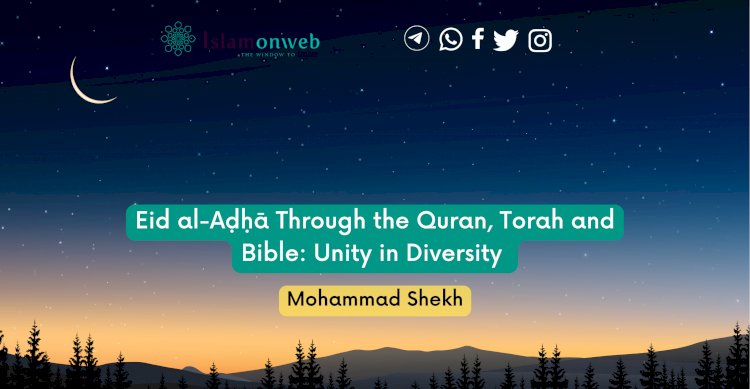


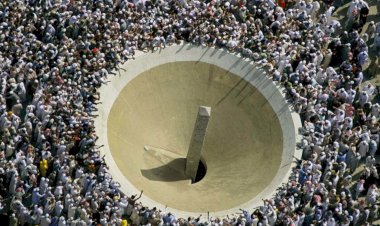

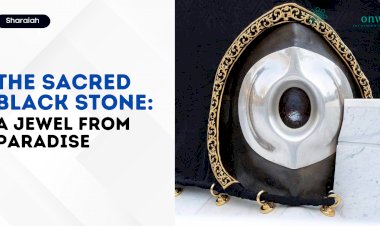
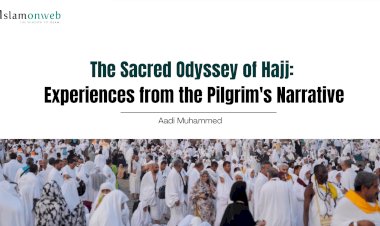
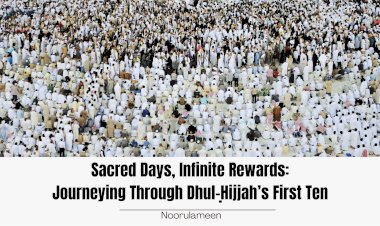















Leave A Comment